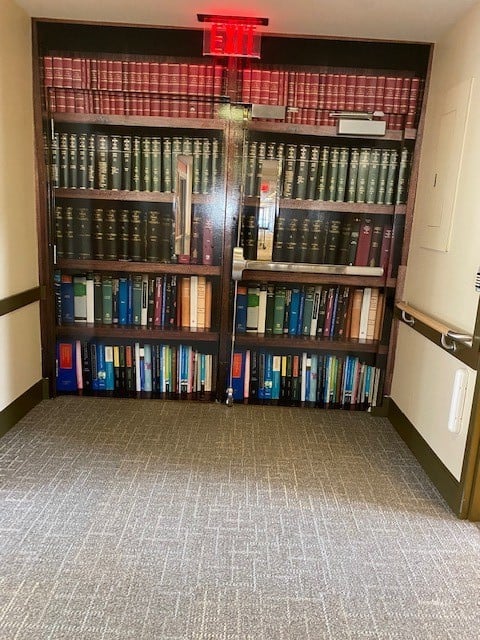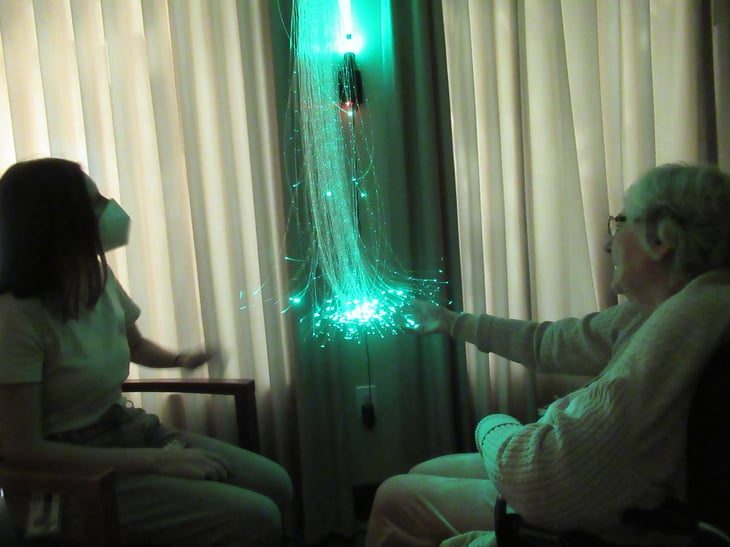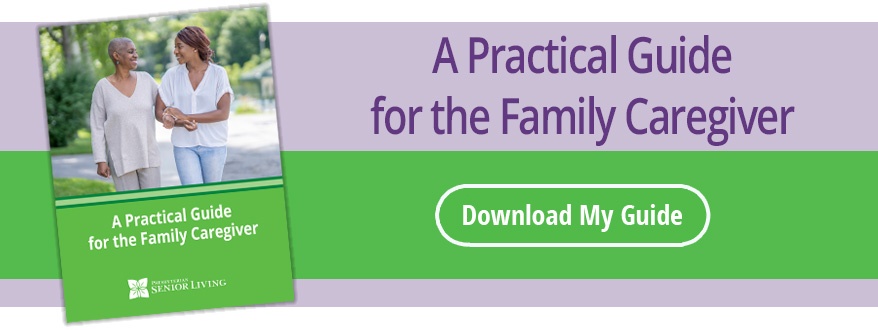
The Importance of Memory Care in a Senior Living Community
Health & Aging | Caregiver Support
Updated from the original publication on September 22, 2022.
An essential component of a life plan community is compassionate memory support. When a loved one has Alzheimer’s or another form of dementia, finding a care partner that understands the disease and how to promote individual success is vital.

At PSL communities, for example, memory care is an extension of our person-centered approach to care. These unique neighborhoods offer people with dementia a smaller, quieter environment staffed by caregivers who undergo specialized training.
According to Vice President of Purposeful Living, Alicia Fenstermacher, LSW/MSW, NHA, CDP, instead of concentrating on the losses caused by the resident’s dementia, caregivers in PSL memory care neighborhoods “approach things from a strengths perspective. Unlike most healthcare settings, which really focus on health and care, our memory support neighborhoods build on a resident’s strengths.”
“We also strive to create an environment that nurtures meaningful days. By enabling residents to have a good day, we capitalize on joy and comfort, and ensure that people have the best ‘right now’ that they can,” explains Fenstermacher. While PSL has had memory support for quite a long time, about six years ago team members from around the globe sat down to explore best practices from multiple viewpoints. This led to an evolution in PSL’s memory support that is more purposeful. Fenstermacher describes this new approach as strategic.
Team members learn to maintain a compassionate presence when providing care. This means team members approach their caregiving role from the perspective of supporting the individual, instead of focusing on specific tasks they are trying to complete. This can enrich the nature of the time spent together.
Your Journey Forward
According to Fenstermacher, the team looked at practices they could integrate with those they already knew were successful. It meant determining what additional support and services they wanted to offer and developing a blueprint for getting there.
“We began creating what's called, Your Journey Forward. These are a set of training standards that guide our communities. In them, we talk about everything from the individuality of the people we serve to how to allow residents to age in place. We discuss the benefits of living in an environment that fosters relationships. And we address the importance of residents being comfortable where they are and being able to remain there even when they are no longer able to do the things they once enjoyed.”

Your Journey Forward emphasizes the individual. While group activities occur, the focus is on the individual resident. Activities stem from what we know about Alzheimer’s and other types of dementia. Fenstermacher uses an example of the changes in vision common with dementia. “Someone with memory loss typically has a vision scope of about 18 inches. That’s because their peripheral vision is smaller, a change caused by the disease. So, their ability to see things covers a much smaller area.”
Fenstermacher says you can get a feel for what it’s like by putting your hands around your eyes to block out peripheral vision. When you do so, you’ll understand that there is less in the world for you to see. So, the teams at PSL communities work to have more meaningful activities available to residents that recognize their world. “An example would be a table that has a puzzle started with additional pieces set out. We leave it there so people see what they're supposed to do.”
Willingness to Try New Things
Another part of the culture of PSL memory support neighborhoods is being open to trying new things that might improve resident quality of life. This might be a weighted blanket to calm anxiety or using tunable LED lights to help realign circadian rhythm and overcome sleep problems.
Here are some additional examples of the memory support team’s willingness to innovate:
- Camouflage Doors: Recently, at St. Andrews Village, the doors in the Memory Care Neighborhood were camouflaged with images of bookshelves to improve the residents’ experience. It’s a technique found to be successful in keeping residents with dementia from trying to exit the building alone. Staff noticed an almost immediate difference in how residents navigate the hallways.

- Serenity Room: Another new program at St. Andrews Village is the creation of a multi-sensory environmental space. It’s designed to promote intellectual activity and encourage relaxation. Located in the Memory Care Neighborhood, the Serenity Room helps residents in a variety of ways. It can help to calm a resident who is upset as well as stimulate someone who cannot engage otherwise. This room can be completely transformed for this program in as little as five minutes, which allows this room to serve multiple purposes.

Schedule a Visit to a PSL Community
The best way to learn more about the innovative approach to memory care at PSL is by scheduling an in-person visit. Use our Interactive Community Chooser tool to find a memory support program near you!
About Presbyterian Senior Living
As the trusted leader in aging services, Presbyterian Senior Living combines over 95 years of experience with innovative approaches to senior communities and services. Across our 27 communities in PA, MD, OH, and DE, we serve over 6,500 seniors. We are committed to: FOSTERING teamwork and responsibility. UPHOLDING integrity in every action. EMBRACING innovation to create opportunities for everyone’s success. LEADING with compassion and respect.


